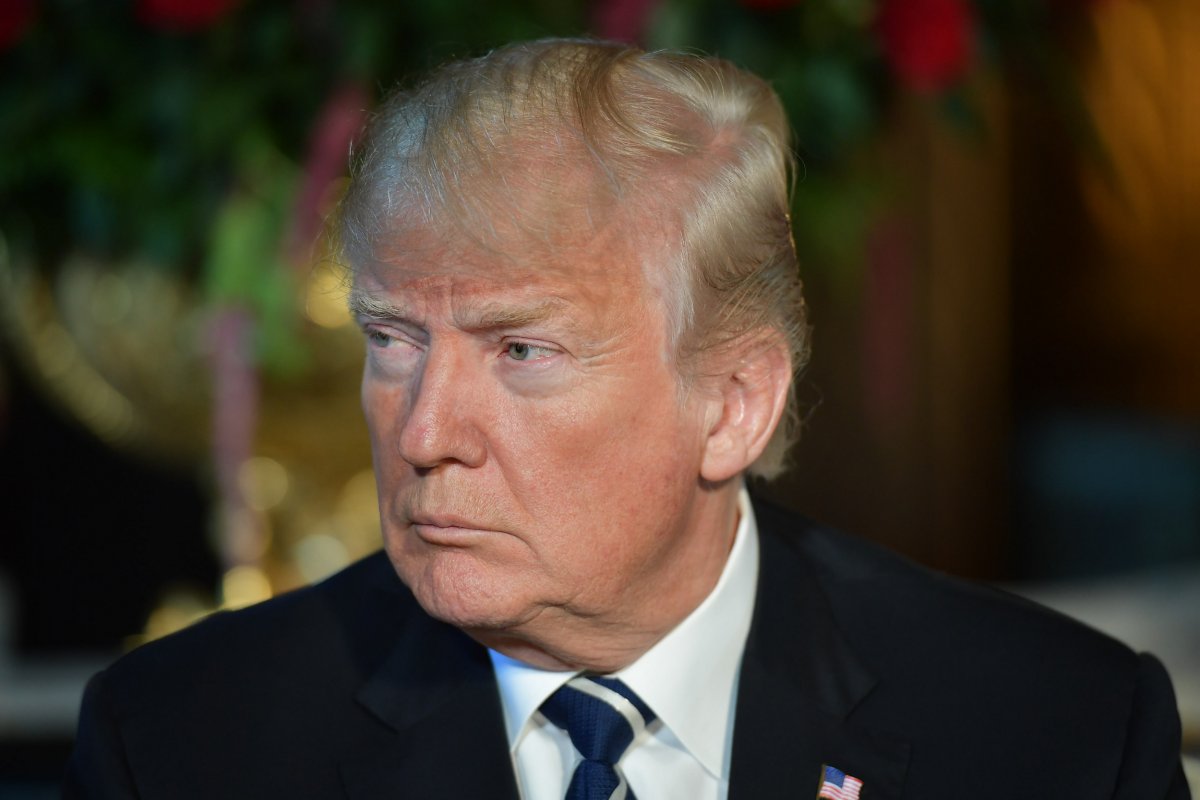Some of the most high profile Donald Trump supporters, conservative figures, and conspiracy theorists gathered at the former president's Mar-a-Lago resort to watch a screening of the 2020 Election documentary, 2,000 Mules.
The film, created by right-wing political commentator Dinesh D'Souza, claims to reveal evidence that the last election was rigged due to widespread voter fraud.
The allegations made by the documentary, which fact checkers at The Associated Press and Politifact have ruled misleading or flawed, suggests that people were allegedly paid to drop off large amounts of ballots in Arizona, Georgia, Michigan, Pennsylvania and Wisconsin which could have swayed the election.
The main thrust of the claims made by the film are based on surveillance footage of ballot boxes and analysis of cellphone location data.

2,000 Mules was played in selected theaters on May 2 and May 4, with Trump also hosting an event at his Florida resort where guests watched the documentary which he believed backs up his false claims of election fraud.
Among those who were in attendance at the screening were some of the most prominent and frequent pushers of the so-called "big lie" that the last election was rigged, including Trump's personal attorney Rudy Giuliani, MyPillow CEO Mike Lindell and Georgia congresswoman Marjorie Taylor Greene.
With my dad at the premiere of @DineshDSouza’s new film, 2000 Mules. Great to see so many friends and patriots who put AMERICA FIRST!@dbongino @RepMTG @ThisIsKyleR pic.twitter.com/QmsrZSURVd
— Jenna Ellis (@JennaEllisEsq) May 4, 2022
Few Americans greater than General Flynn himself!
— Vernon Jones For Congress (@VernonForGA) May 5, 2022
It’s an honor to have his support and an even greater honor to join him at Mar-a-Lago today for the premiere of #2000Mules. pic.twitter.com/7QNXFuH2M1
Also present at the event was Kenosha shooter Kyle Rittenhouse, journalist Lara Logan, controversial Georgia Republican congressional candidate Vernon Jones, and Michael Flynn, the former national security adviser under Trump turned leading figure in the radical QAnon movement.
Several other members of Trump's inner circle were also present at the screening in Mar-a-Lago, including his former campaign legal adviser Jenna Ellis, ex-campaign adviser turned CEO of social media site Gettr Jason Miller, and Marc Lotter, the director of strategic communications for Trump's 2020 campaign who is now chief communications officer of America First Policy Institute.
The Associated Press said 2,000 Mules uses "flawed" analysis of cellphone location data to suggest there was widespread voter fraud in the 2020 presidential election, a claim which has not been proven nearly 18 months after the event took place.
The film suggests that thousands of people may have been paid to collect ballots and drop them off at collection boxes in key swing states in 2020.
The film makes the claim by tracking cell phone geolocation data and noting a number of people went near a ballot drop box or a non-profit where votes were cast several times between October 1 and Election Day in 2020.
The film also shows surveillance footage of people dropping off a number of mail-in ballots at drop boxes, including some allegedly in the early hours of the morning.
Joining America’s Mayor, @RudyGiuliani at Mar-a-Lago with @realdonaldtrump to watch Dinesh Desousa’s 2000 Mules!
— Bernard B. Kerik (@BernardKerik) May 5, 2022
Many in the audience were shocked at the overwhelming evidence of fraud.
Is @GaSecofState @BrianKempGA @FultonCountyDA @MaricopaVote investigating? pic.twitter.com/b5nXO7umou
However, experts say it is too much of a leap to suggest that cellphone tracking, which can only reliably track a person's smartphone to within a few meters, proves these people were going directly to the drop boxes, which are often purposely located in busy areas.
"You could use cellular evidence to say this person was in that area, but to say they were at the ballot box, you're stretching it a lot," said Aaron Striegel, a professor of computer science and engineering at the University of Notre Dame.
"There's always a pretty healthy amount of uncertainty that comes with this."
There are many legal instances in which a person can be dropping off multiple ballots, such as for family members or people with disabilities.
The claims that the people they are discussing were engaging in "Ballot harvesting"—which is largely illegal in the states the film focuses on—is made by one unidentified whistleblower from Arizona, who said she saw people picking up what she "assumed" to be payments for ballot collection.
The film also does not support suggestions that the people shown on surveillance footage depositing multiple ballots into the boxes were the same as the ones whose cellphone data were tracked.
"It is conspiracist thinking," Kenneth Mayer, a professor of political science at the University of Wisconsin-Madison, told Politifact.
"They are interpreting data that confirms their pre-existing conclusions. It's a zombie claim; no matter how many times you kill it, it keeps coming back."
Uncommon Knowledge
Newsweek is committed to challenging conventional wisdom and finding connections in the search for common ground.
Newsweek is committed to challenging conventional wisdom and finding connections in the search for common ground.
About the writer
Ewan Palmer is a Newsweek News Reporter based in London, U.K. His focus is reporting on US politics, domestic policy ... Read more
To read how Newsweek uses AI as a newsroom tool, Click here.








